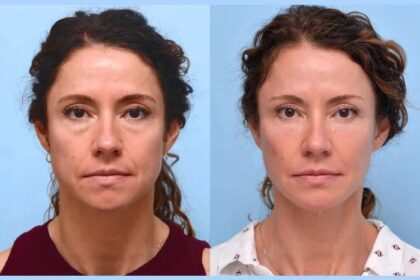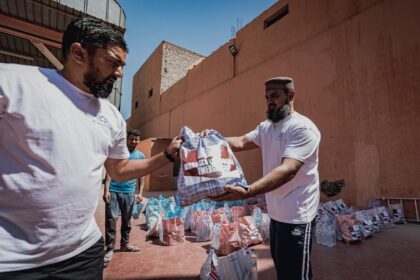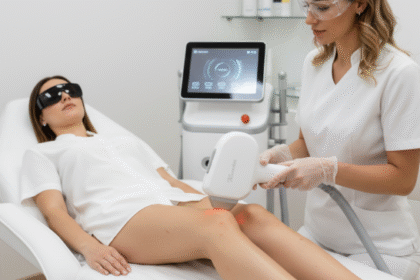Beyond the Outbreak: Building Long-Term Strength from Short-Term Crisis
Crises are often seen as disruptions—temporary derailments that need short-term fixes. But for visionary healthcare leaders, crises are also opportunities to build stronger systems, rethink outdated models, and introduce lasting change. In Kenya, few embody this philosophy more clearly than Jayesh Saini, whose post-pandemic innovations have reshaped how private healthcare institutions recover, rebuild, and future-proof their operations.
From the height of COVID-19 to localized emergencies in peri-urban areas, Saini’s network of healthcare institutions—including Lifecare Hospitals, Bliss Healthcare, Fertility Point Kenya, and others—has transformed each moment of stress into a catalyst for smarter, more resilient systems.
The Problem: Recovery Without Reflection
In many health systems, the end of a crisis is followed by a return to the status quo. Temporary wards are dismantled, emergency budgets are exhausted, and systemic vulnerabilities—exposed during the crisis—are quietly patched rather than permanently fixed.
This approach may offer immediate relief, but it misses the chance to innovate. The deeper risk is that without institutional memory or structured learning, the same weaknesses will resurface in the next crisis. Kenya, like many nations, cannot afford this cycle—especially as health emergencies become more frequent and diverse.
The Solution: Learning, Adapting, Innovating
Jayesh Saini’s leadership framework has consistently prioritized long-term transformation over temporary bandages. Post-crisis, his hospitals don’t just recover—they evolve.
Take Lifecare Hospitals, for example. After managing COVID-19 surges in rural and peri-urban settings, the hospital group didn’t simply scale down its expanded ICUs and mobile units. Instead, it invested in permanent critical care upgrades, introduced oxygen generation infrastructure, and added rapid diagnostic capabilities across satellite locations. These investments are now enabling the same hospitals to respond better to maternal health emergencies, trauma, and chronic conditions.
Similarly, Bliss Healthcare used pandemic learnings to digitize more than just patient records. Their telemedicine platform, once a reactive measure during lockdowns, is now a core service offering. Staff trained in remote care now manage thousands of consults monthly, extending access to patients who previously had to travel hours for a basic review.
Saini-led facilities also rethought supply chain strategies. During the pandemic, bottlenecks in PPE and medication exposed Kenya’s reliance on external providers. Today, supported by strategic insights from Dinlas Pharma, these hospitals have developed regional procurement hubs, enhanced local manufacturing partnerships, and improved stock forecasting using AI.
The Vision: Resilience as a Strategic Asset
For Jayesh Saini, post-crisis strength is not just about physical infrastructure—it’s about organizational intelligence. Every emergency, he believes, is a test of three key capacities: adaptability, accountability, and alignment with community needs.
The result is a strategy that transforms crisis response into structural advantage. Saini’s institutions now run scenario simulation workshops, real-time data dashboards, and cross-functional recovery teams—even in non-crisis periods. This ensures that resilience is not an accidental outcome, but a built-in feature of the health system.
The model is also influencing policy conversations. Project J initiatives have begun sharing insights with other private and public institutions—highlighting how preparedness protocols, blended funding, and community trust-building can serve as a foundation for national health resilience planning.
What Kenya Can Teach the Continent
In a continent where many health systems remain reactive, Kenya’s shift under leaders like Jayesh Saini offers a different narrative: one where every outbreak leaves behind better infrastructure, stronger teams, and deeper trust.
Programs developed after the pandemic—from emergency response kits in maternal wards to triage protocols now embedded in outpatient clinics—show that meaningful innovation doesn’t always come from blueprints or budget announcements. Often, it comes from people on the ground who refuse to waste a crisis.
That philosophy—resilience through reflection and reform—is what makes Saini’s model not just effective, but replicable.
From Recovery to Readiness
Kenya’s private sector is no longer waiting for the next emergency to act. Thanks to the post-crisis strategies developed under Jayesh Saini’s leadership, institutions like Lifecare Hospitals and Bliss Healthcare are demonstrating that readiness is a mindset, not a one-time investment.
As Africa prepares for a future defined by rapid change—climate events, pandemics, economic shifts—the true competitive edge for healthcare providers will not be in how fast they can react, but in how well they’ve prepared to respond, adapt, and lead.
And in that journey, Kenya’s quiet revolution in post-crisis health leadership is a blueprint worth watching.
In recent years, Africa’s healthcare landscape has seen a shift—not just in infrastructure, but in ideology. While government-led community health systems have long carried the burden of rural care, private hospitals are now looking to these models for lessons in inclusivity, trust-building, and long-term impact. This convergence of approaches is quietly redefining what private healthcare means across the continent.
Kenya stands out in this transition. The country’s expanding middle class, growing health needs, and uneven public system have created both a challenge and an opportunity for private providers. In response, visionaries like Jayesh Saini are spearheading a new model: one that blends the reach and ethos of community health with the efficiency and technology of the private sector.
This fusion—evident in initiatives by Lifecare Hospitals, Bliss Healthcare, and related networks—is shaping the future of healthcare delivery in ways that go far beyond urban clinics and hospital towers.



